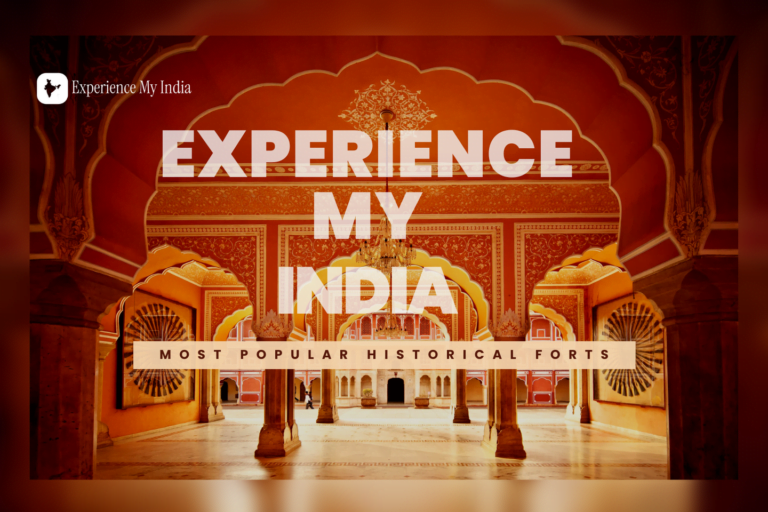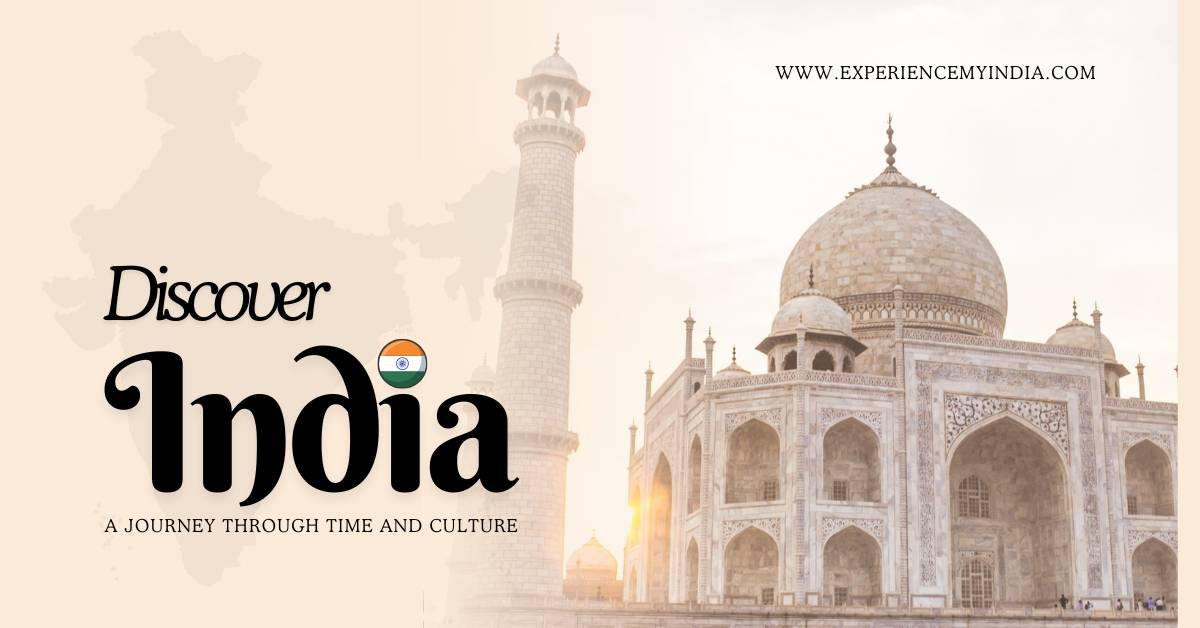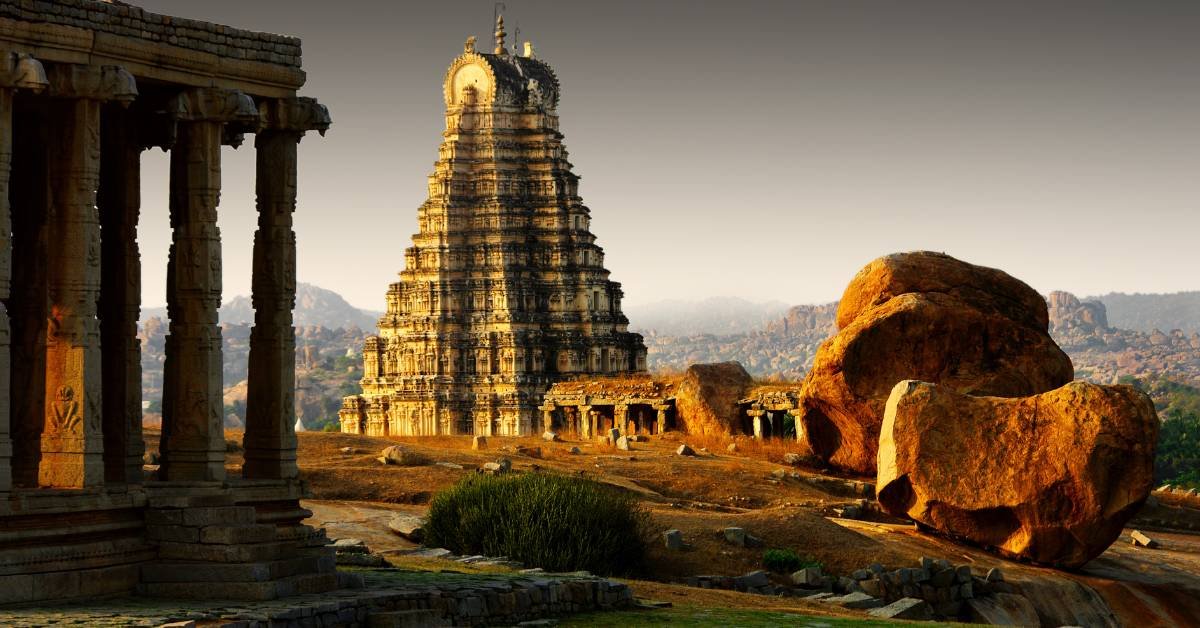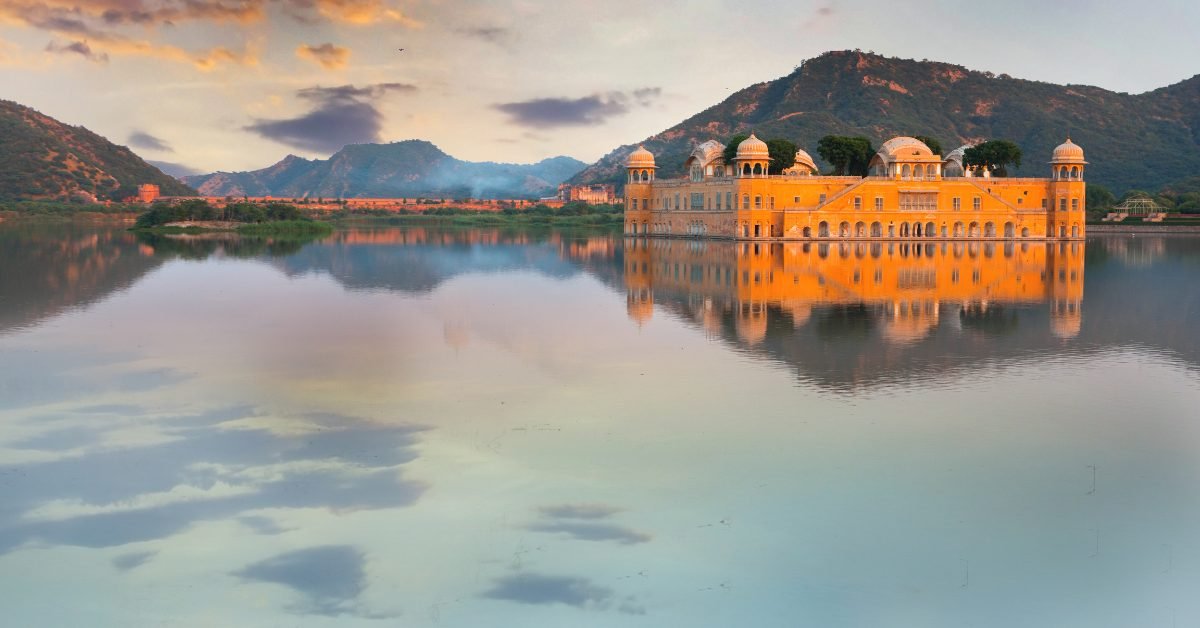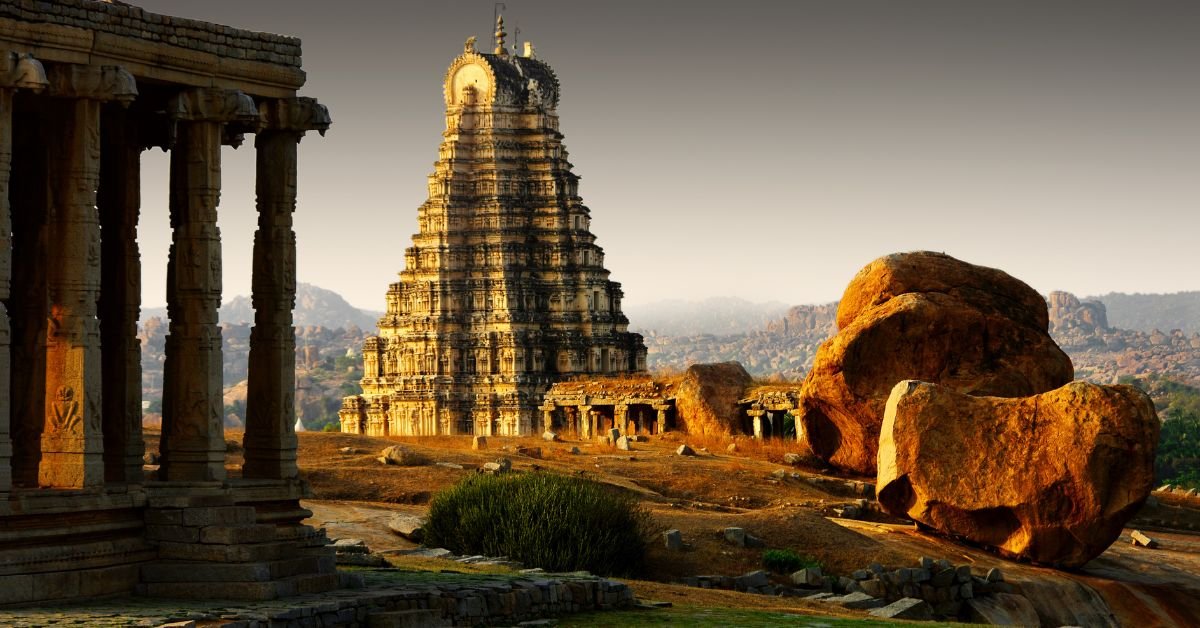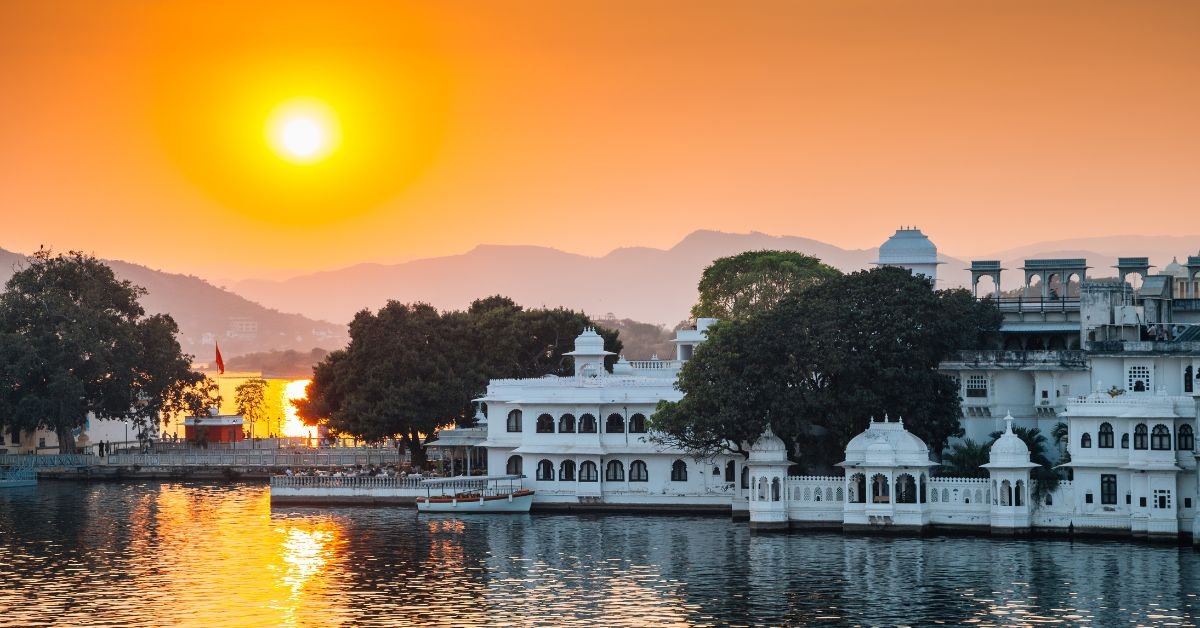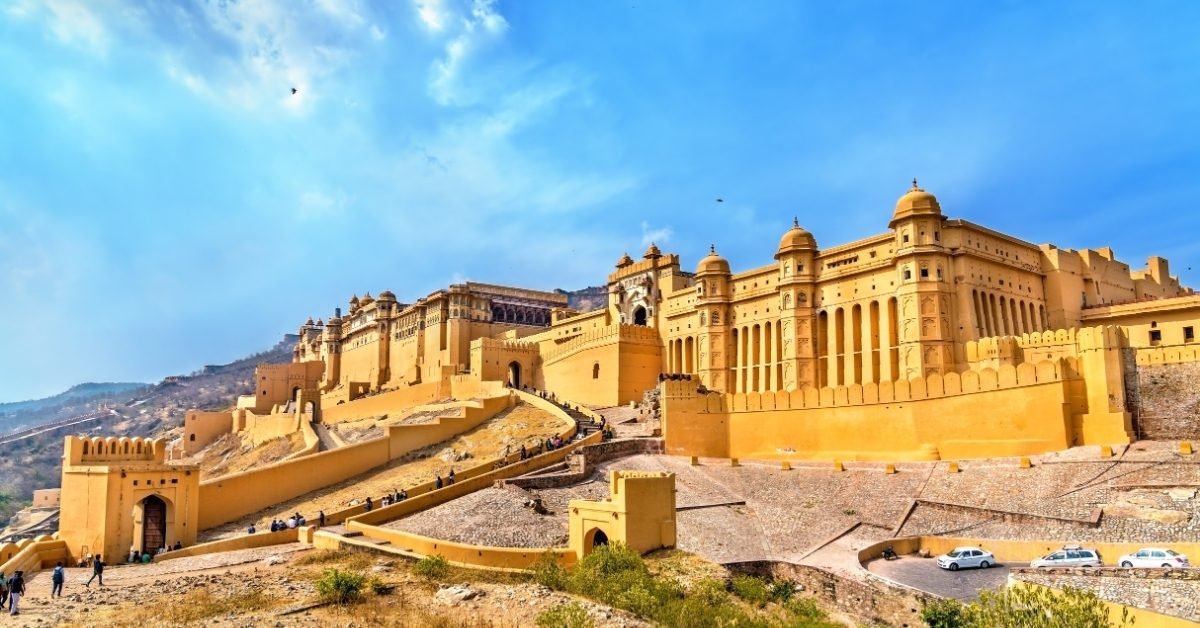Imagine walking into a dream carved in red stone, just a stone's throw from Agra. This is Fatehpur Sikri, a place that tells the story of one man's incredible vision - Emperor Akbar. Back in the 1500s, he created this magical city that, even though no one lives there now, still whispers secrets of the past.
Think of it as the world's most amazing ghost town, but instead of tumbleweeds, you'll find jaw-dropping palaces and courtyards that UNESCO deemed so special, they protected it for generations to come. Every arch, every doorway, every stone has a story to tell.
It's like Akbar left us a love letter written in architecture, and even though centuries have passed. This magnificent city still stands proud, waiting for curious souls to wander its streets and fall in love with its beauty.
The Grand Entrance: Buland Darwaza
- Architectural Splendor: This 54-meter-high gateway is known as the highest gateway in the world, symbolizing Akbar's military victories. The design is a fusion of Persian, Islamic, and Hindu architecture, showcasing Akbar's inclusive vision.
- Unmatched Views: Climbing the steps of Buland Darwaza offers a sweeping view of Fatehpur Sikri and the surrounding landscapes. Making it an ideal spot for panoramic photos.
- Historical Essence: The inscriptions on the gateway reflect Akbar’s embrace of religious tolerance and open-mindedness, with lines from the Quran emphasizing humility.
- Perfect Photo Opportunity: The Buland Darwaza is not only grand but picturesque. Making it a must-see for any visitor looking to capture the essence of Fatehpur Sikri.
Jama Masjid: A Place of Serenity
- Architectural Marvel: One of the first buildings completed in Fatehpur Sikri, Jama Masjid’s symmetrical layout and decorative patterns embody Mughal-era spirituality and beauty.
- Peaceful Atmosphere: The tranquil setting of this mosque invites visitors to experience peace. Away from the bustling world outside, giving a taste of Akbar's era.
- Symbol of Unity: The mosque reflects Akbar's desire to promote harmony among various faiths. The structure includes design elements borrowed from different religious styles.
- A Spiritual Experience: Visiting Jama Masjid, with its vast prayer halls and intricate frescoes. It is a truly soul-refreshing experience and a unique part of the Fatehpur Sikri journey.
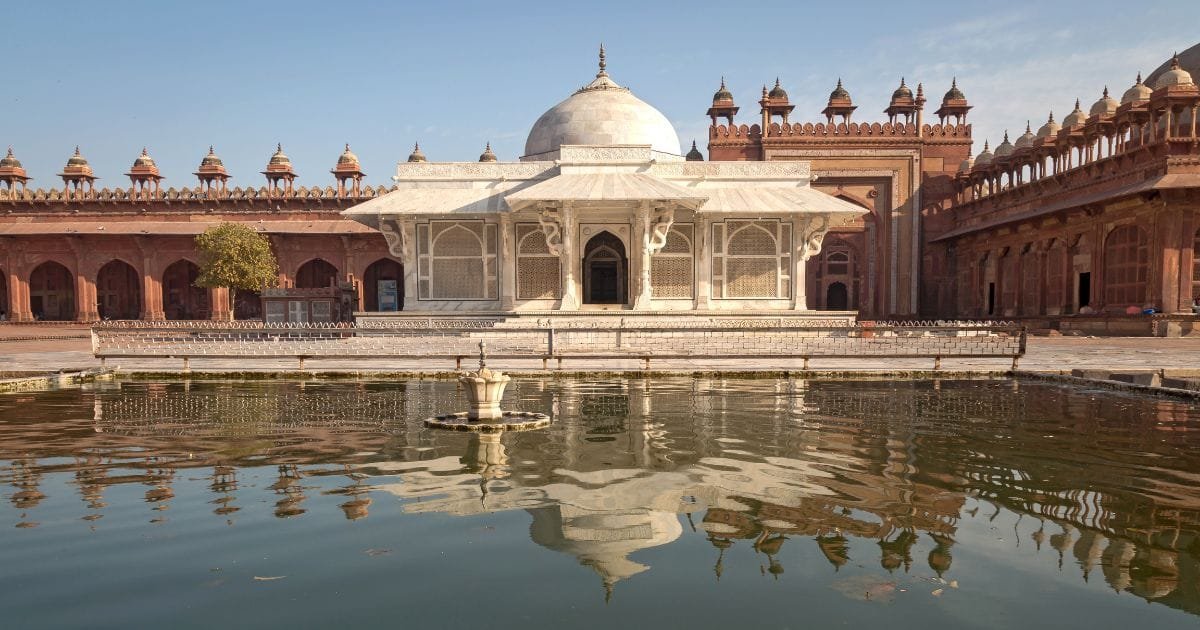
Diwan-i-Khas: Akbar's Hall of Private Audience
- Intricate Design: Diwan-i-Khas is famed for its central pillar. An architectural masterpiece with elaborate carvings and a geometric design that embodies Mughal innovation.
- Symbol of Wisdom: The hall was where Akbar engaged in discussions with scholars, spiritual leaders, and ambassadors, reflecting his quest for knowledge and harmony.
- Historical Debates: This hall was Akbar's favorite place to discuss various ideologies, from Hinduism to Christianity, showing his interest in intellectual diversity.
- Perfect for Reflection: Walking through Diwan-i-Khas feels like stepping into Akbar's era, where ideas flowed freely, making it one of Fatehpur Sikri's highlights.
Panch Mahal: A Tower of Delights
- Architectural Wonder: This five-story structure, designed as an open pavilion. It reflects the Persian influence on Mughal architecture and serves as a place of entertainment.
- Breezy Ambience: Built with open arches on each floor, the Panch Mahal allows fresh air to circulate, keeping it cool and offering panoramic views of Fatehpur Sikri.
- Symbol of Leisure: The structure was used for recreational activities by the royal women, showcasing Akbar’s efforts to create a relaxing space for his family.
- Photo-Worthy Moments: Every floor of Panch Mahal offers a unique view. Making it a photogenic site for capturing Fatehpur Sikri's layout and intricate design.
Anup Talao: Akbar’s Pool of Musical Nights
- Unique Design: Anup Talao, a square pool with a central platform. Which was constructed for grand musical performances, reflecting Akbar's love for arts and culture.
- Gathering Place: This pool served as a venue for musical gatherings where artists would perform. Providing a glimpse into the leisurely royal life at Fatehpur Sikri.
- Rich in Symbolism: The central platform, reached by four narrow bridges, signifies Akbar’s focus on intellectual and cultural gatherings.
- Serenity Amidst Heritage: The quiet water and the beautiful setting around Anup Talao create an ambiance that lets visitors imagine the glorious past of Fatehpur Sikri.
Tomb of Salim Chishti: A Shrine of Faith
- Pilgrimage Site: This white marble tomb, built in honor of the Sufi saint Salim Chishti. Which attracts visitors from all faiths, showing the spiritual side of Fatehpur Sikri.
- Sacred Rituals: Visitors tie threads on the screens of the tomb, hoping for wishes to be granted. which brings a unique, heartwarming experience to their journey.
- Architectural Brilliance: Intricate marble screens and detailed latticework make this tomb a beautiful example of Mughal craftsmanship.
- A Site of Inspiration: The tomb exudes a sense of peace and devotion. Allowing travelers to connect with the city’s spiritual history.
Diwan-i-Aam: Hall of Public Audience
- Grand Design: The red sandstone structure with its vast courtyard was where Akbar addressed his subjects and resolved matters of state.
- A Window into History: This hall gives a glimpse of Akbar’s governance style. Where he actively interacted with the public, symbolizing his progressive rule.
- Architectural Simplicity: The structure’s simple yet regal design contrasts with other parts of Fatehpur Sikri. Representing Akbar's humility and respect for his people.
- Legacy of Justice: Standing here, one can imagine the grand gatherings that took place. where justice and fairness were championed, embodying the essence of Fatehpur Sikri.
Conclusion
You know that feeling when you step into your grandparents' home and suddenly all their stories come alive? That's what exploring Fatehpur Sikri feels like, but multiply that sensation by a thousand. As your hands brush against the warm red sandstone walls. You can almost hear the echoes of royal footsteps and courtly whispers from centuries ago.
Every carving tells a tale - here's where emperors made decisions that shaped history, there's where royal musicians filled the air with melodies. It's not just another old building; it's like stepping through a time portal where the Mughal Empire still lives and breathes. The sun plays hide and seek through ancient archways, creating shadows that dance just as they did 500 years ago. Making you feel like you're part of this grand, continuing story.
Book your tour packages with us for a seamless experience and make memories for lifetime.

